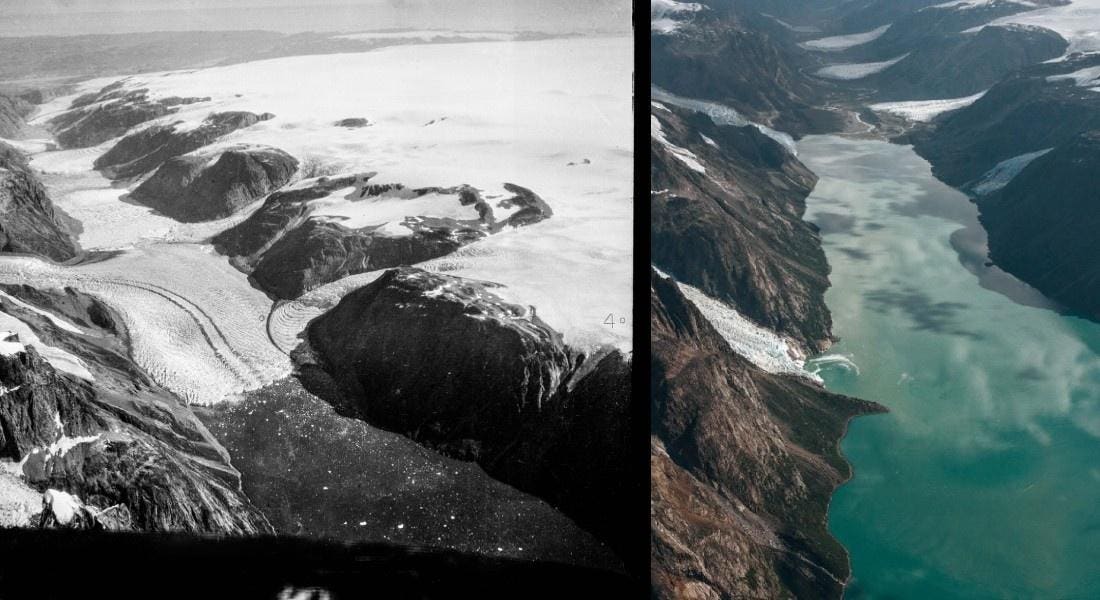This week’s Current Climate, which every Saturday brings you the latest news about the business of sustainability. Sign up to get it in your inbox every week.
In new research published earlier this week, researchers monitoring Greenland’s glaciers have discovered that the pace of their melting has increased fivefold in the past 20 years. In the 1980s and 90s, the island’s glaciers shrank about five meters per year, on average. Today it’s now an average of 25 meters. This matters because over those same two decades about 21% of total sea level rise can be attributed to these melting glaciers. That has global implications for coastal cities around the world, which will have to amp up their infrastructure to contend with rising waters.
“We’re in a new era where glaciers are generally in retreat, with major consequences for sea levels that will rise faster and faster,” one researcher said in a press release.
The Big Read
This Startup Hopes Its Nanomaterial Fuel Tanks Will Jumpstart The Hydrogen Revolution
Hydrogen is a promising form of carbon-free energy, but moving and storing the superlight element is costly and energy-intensive. So a California startup cofounded in 2022 by two leading chemists, including a Nobel laureate, is designing a new type of tank made with nanomaterials that aims to be cheaper and safer than any currently in use — and hold more hydrogen, too.
Read more here.
Sustainability Deals Of The Week
Electric Buses: Proterra, a once-promising maker of battery-powered buses and trucks that filed for Chapter 11 bankruptcy in August, is being purchased by truckmaker Volvo for $210 million.
Battery Storage: Battery storage project developer esVolta announced it has received a tax equity investment from U.S. Bank subsidiary U.S. Bancorp Impact Finance to support the competition of its 30MW battery project near Los Angeles.
Carbon Removal: Deep Sky is partnering with Equatic to develop direct air capture units that utilize ocean sequestration in Canada, with operations expected to begin in Quebec in 2024.
Solar Power: Veolia North America announced that it’s installing a five megawatt solar energy system at a hazardous waste treatment facility in Arkansas, which will be enough to make the plant energy self-sufficient.
The Big Transportation Story
Planes, Trains And Climate Change
Air travel generates a lot of carbon pollution, contributing to a climate crisis whose worsening weather also makes air travel more turbulent and unpleasant. As those conditions intensify in the years ahead, research suggests high-speed trains — which don’t exist in the U.S. — would be a resilient alternative.
Read more here.
Other Sustainability News
Greenpeace is facing a $2.1 million lawsuit from oil giant Shell after the environmental advocacy group’s protestors occupied a floating oil platform in January
The true cost of dealing with plastic waste is 10 times higher for low-income countries than richer nations, despite them consuming less of the material, according to a new study.
Amazon-backed electric vehicle maker Rivian said it plans to start selling its battery-powered delivery vehicles to new customers as an initial period of making them exclusively for the retail giant concludes.
A meta-analysis of research found that new forests planted with a mix of different kinds of trees store significantly more carbon than those where one type of tree predominates.
What Else We’re Reading This Week
The 20 Farming Families Who Use More Water From the Colorado River Than Some Western States (ProPublica)
Red State Drivers Turn Up Their Noses at EVs Despite Incentives (Bloomberg)
The Sporty EV Pickup of My Dreams Is Coming — But Not to America (Heatmap)
For More Sustainability Coverage, Click Here.
Read the full article here





